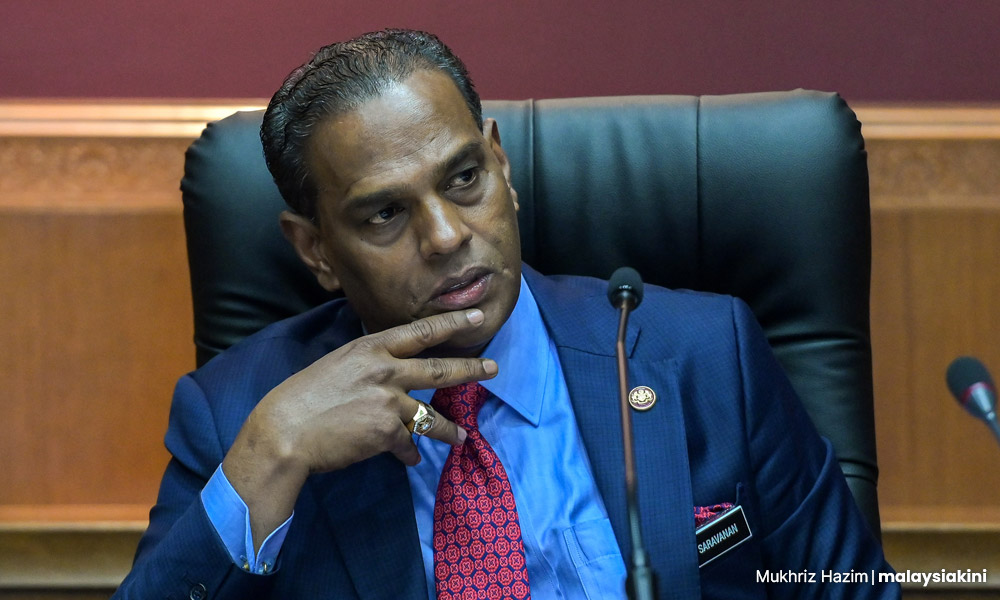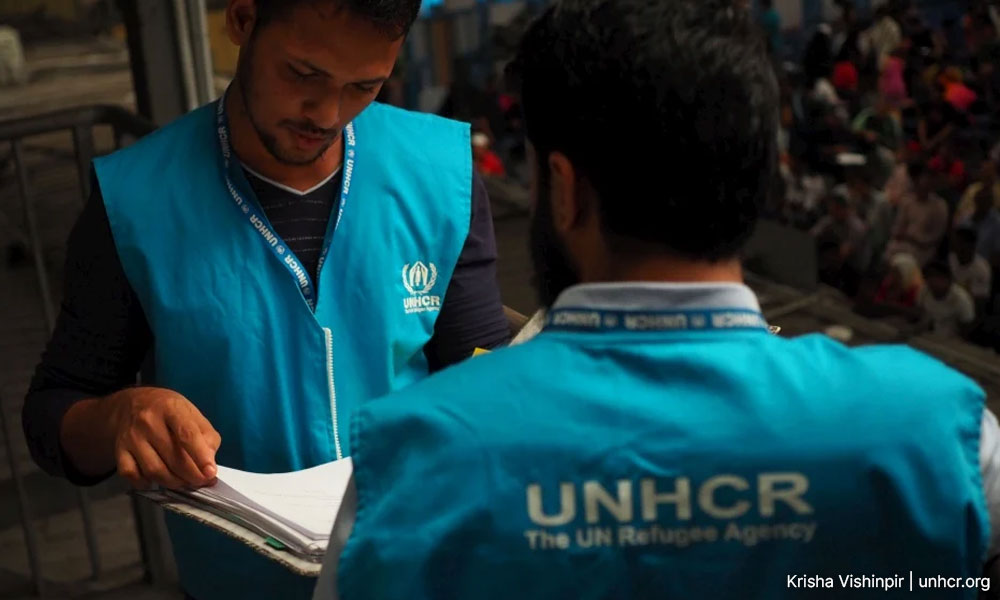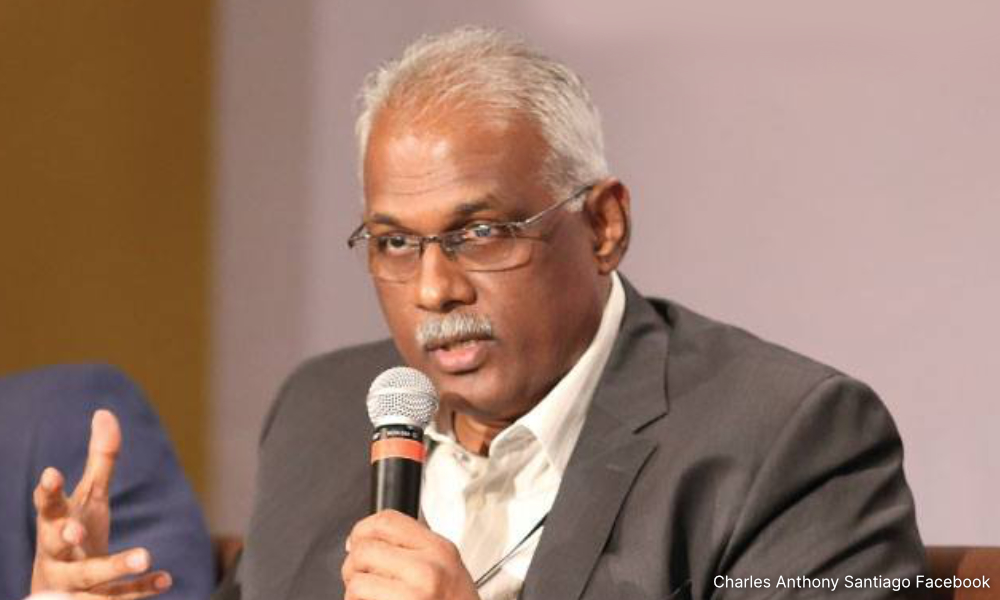In-depth research will be conducted to pave the way for refugees to work in certain sectors, according to Home Minister Saifuddin Nasution Ismail.
It was reported that the ministry is working with the United Nations High Commissioner for Refugees (UNHCR) to collect data such as where the refugees reside to determine their actual numbers before they are permitted to work.
“Once we have the number for the data, we can start doing the mapping. For example, mapping of the (Rohingya) refugees in Sabah, Perlis, and Sarawak,” he was quoted as saying by Mingguan Malaysia.
Saifuddin (above) said among the sectors identified for refugee employment are agriculture and plantation, based on industry demands.
Instead of allowing refugees to set up stalls or other small businesses, the data collected will be matched with plantations that need workers, he added.
The discussion to allow refugees to work in Malaysia has spanned several administrations, revived during Pakatan Harapan’s first stint in Putrajaya in 2018.
Then human resources minister M Kulasegaran said he believed refugees already in Malaysia should be allowed to work as an alternative to hiring new migrant workers.

In 2022, Kulasegaran’s successor, M Saravanan, said that together with the Home Ministry, an in-depth study will be carried out on the proposal, due to security factors including preventing an influx of more refugees.
Discrepancies in refugee data
Commenting further, Saifuddin said the exact number of refugees here is unclear, with differences in the data registered with the government and UNHCR.
The government through the National Security Council (NSC) is managing 40,000 refugees from 48 countries, he said, while UNHCR data revealed there are 189,000 refugees in the country.
“(Under NSC) most of them who came (to Malaysia) are between 25 and 40 years old, and they are still productive and capable of work,” he added.

The minister said some refugees entered the country during the Vietnam War with the consent of the leaders at the time.
“They were rescued and brought to Malaysia because they were war victims. UNHCR then registered them and looked for a third country (for them) because refugees cannot stay here for long.”
However, Saifuddin said despite some countries having ended their conflicts, there are still some refugees who cannot return due to ongoing wars.
“Some question why there are still refugees (here) when the war is over. We will discuss this later, but for now, they have been registered and given (UNHCR) cards and are already here,” he said, adding that 75 percent of registered refugees are Rohingya Muslims.
Although Malaysia is not a signatory to the 1951 Convention Relating to the Status of Refugees or the 1967 Protocol relating to the convention, UNHCR said the country is still obliged to adhere to international customary law on human rights including not deporting refugees to countries from which they fled, an act known as refoulement.
Start of something good
When contacted, former Klang MP Charles Santiago said the data collected by the government should focus on job availability instead of the details of refugees, as it may take a long time to be completed.
He said the reason is due to trust in sharing information and refugees’ privacy.
“Collecting refugee data will take a long time. The data should be simple, no need to be elaborate,” he added.
After the data on job vacancies is collected, he said the next step is to let community leaders of refugees know about the vacancies.

“Just tell them, I need 50 or 100 workers. Then (the leader) will find them,” he added.
The Asean Parliamentarians for Human Rights (APHR) co-chair said that while Saifuddin’s latest commitment is a step in the right direction, a clearer timeline of between three and four months should be set for the completion of the data collection process.
Charles suggested that other sectors be included for refugees to work in, including the retail and service sectors.
“They (are) already working in restaurants, retail shops, and markets. But they are undocumented workers. They might have UNHCR cards but they don’t have the right (permit) to work.
“They are (living) in urban areas, so instead of pushing them to agriculture or plantation, wherever they are right now, just legalise them (to work),” he added. - Mkini




No comments:
Post a Comment
Note: Only a member of this blog may post a comment.